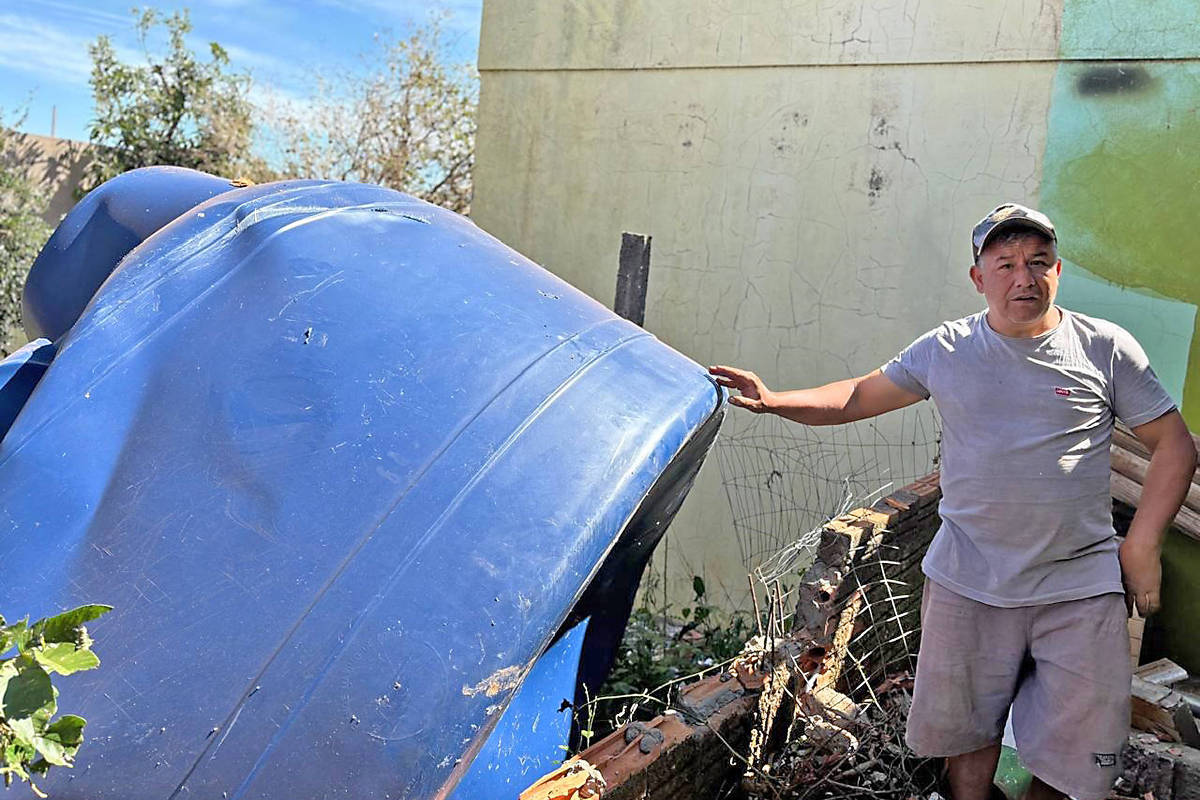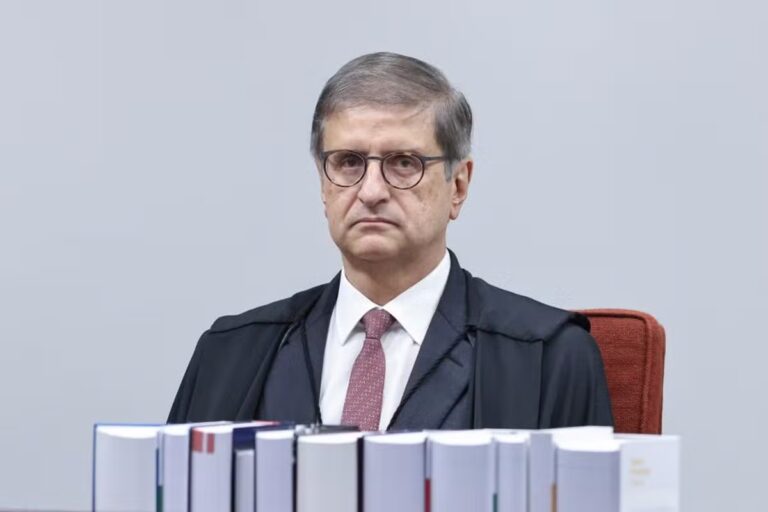
Clinging to branches and staying under dining tables were some of the strategies residents employed in moments of despair during the tornado that devastated the city of Rio Bonito do Iguacu in Paraná state. Construction debris flew over houses and hit other properties during a severe storm that killed eight people in the southern region.
Leandro Gilmam, 45, a civil servant, said he was surprised by the huge tank, but he still doesn’t know where it came from because it didn’t belong to his neighbor. “My family and I welcomed each other under the table. It’s inexplicable, but it’s a miracle of God that we’re alive,” he says.
Tereza Bittu, 88, a retired worker, says the stove saved her life. The walls of the house collapsed on him, but household appliances located higher up served as protection. The stove was pushed to a stop next to her and she hid under the table.
She was rescued by a neighbor with the assistance of police officers and taken to a hospital in Laranjeiras. A black eye and marks on her body indicate the impact of an object thrown at her. “I think I ran away for the love of God,” he sums up.
Tereza stayed with her daughter in Laranjeiras do Sul before returning to Rio Bonito do Iguacu to return to her home. What little remains must be demolished.
Jose Nild Nascimento, a mechanic, reported that he was on the road returning to his home when the tornado hit the city. He said a tree fell nearby, causing the trunk to bulge slightly.
Knowing the danger, I clung to the trunk to avoid being carried away by the wind. “It was dangerous (to continue the obsession), but I did it at the time,” he says. The tornado completely destroyed his house.
welcome from friends and relatives
A sense of solidarity united the city’s residents. Adelita Moretti, a trader whose home was partially destroyed, took in her 94-year-old father-in-law and her brother-in-law and sister-in-law, who had lost everything. His mansion was one of the first to have electricity restored.
As a result, she began renting out space to residents to charge their phones, shower, and even eat.
Two of her cars were destroyed by the tornado. “We have two broken down cars, but that’s nothing. God will do double duty,” he says.
Retired Clarita Aparecida Carvalho opened the door to her home in Campo do Bugle, near the city, to welcome her brother and brother-in-law who had become homeless. She says it will be able to accommodate more people who need temporary protection.
“We have little, but we share what little we have with others,” he says. His brother-in-law, Claudino Risse, was one of seven people killed in the tornado.
The town of Campo do Bugle was not hit with the same intensity. Very few houses had roofs. On Tuesday morning (11th), retired Albarina Dalmagro came to the house of her niece Chris Diane Dahmer and took home the furniture she had managed to save. “I keep my stuff here, but I don’t know what it’s going to be used for,” he says.
The majority of displaced people are staying with relatives and friends in cities near Rio Bonito do Iguacu.
Alex Sandro Moretti, owner of a funeral parlor in the city, was responsible for taking the four victims to the cemetery last Sunday (9th). Although he was used to the job, he says it was impossible to control his emotions.
“We have to try to maintain a professional attitude, but I confess that it was very difficult. I couldn’t keep it up and ended up breaking down with my family and crying together, because this is something we never expected,” he says.
Seven people were killed in a tornado in Paraná state. There was one casualty in Rio Grande do Sul. One of the concerns of residents and authorities is that the rains expected to begin this Wednesday (12th) could delay reconstruction work in the city.
According to Simepar (Environmental Technology and Monitoring System of Paraná State), localized and short-lived rain is forecast.



